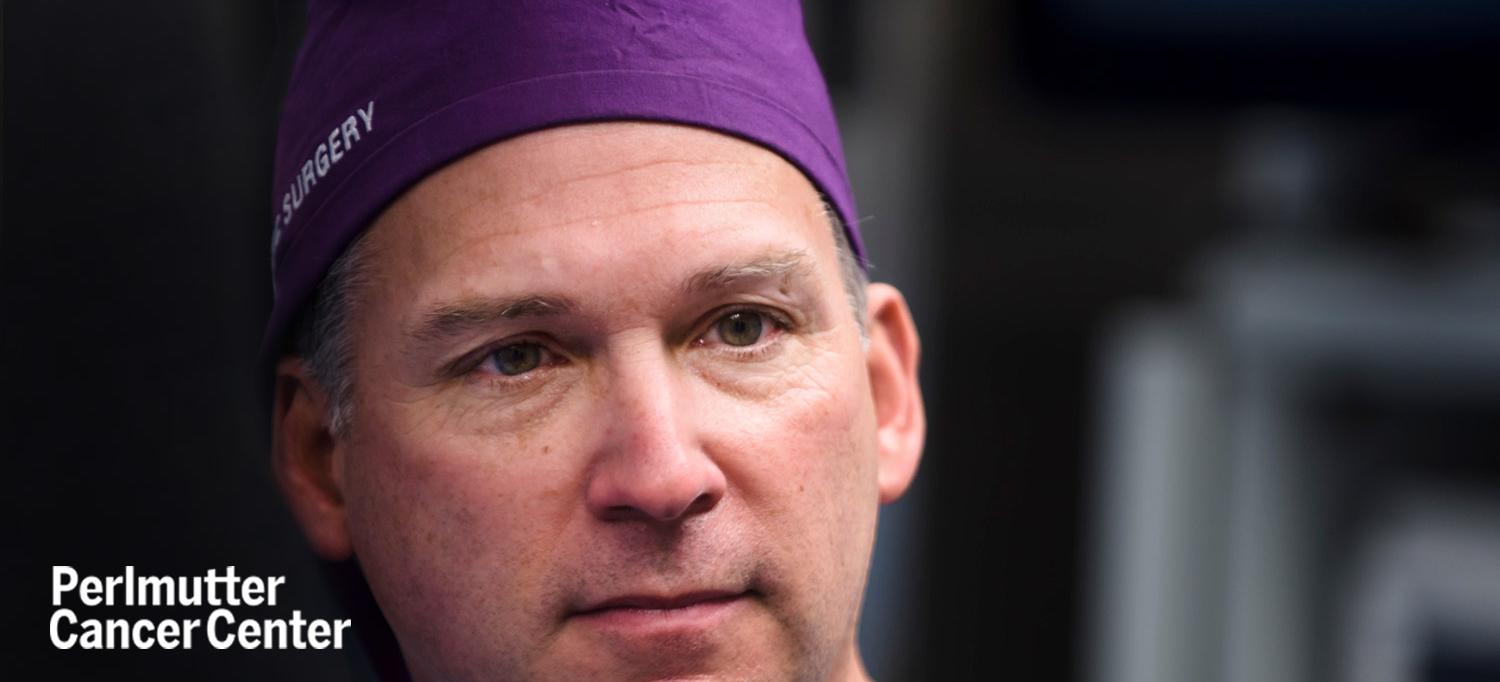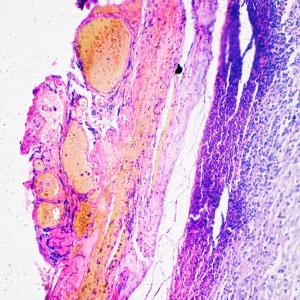
Dr. Richard L. Shapiro discusses surgical advances that help improve outcomes for people with melanoma.
Photo: Karsten Moran
Richard L. Shapiro, MD, professor in the Department of Surgery at NYU Langone and director of surgical oncology operations at Perlmutter Cancer Center, provides advanced surgical care to people with malignant melanoma, breast cancer, and a variety of other skin cancers and soft tissue tumors, such as Merkel cell carcinoma and sarcomas.
Dr. Shapiro was one of the first surgeons to perform, evaluate, and refine the surgical techniques for sentinel lymph node mapping and biopsy. He has been closely involved in the development and application of melanoma treatment vaccines designed to stimulate the body’s immune response to an existing melanoma.
He discusses advances in cancer surgery that have improved outcomes for people with melanoma, the key to his approach to improving their survival, and more.
Over the last several years, your group at Perlmutter Cancer Center has made advances in cancer surgery that have resulted in improved outcomes for patients. To what do you attribute this success?
Several years ago, we became interested in developing strategies to minimize surgeries and make them more cosmetically and functionally acceptable for patients. This effort was supported by our participation in many international multicenter studies that enabled us to participate with other research groups to show that people didn’t necessarily derive any benefit when surgeons performed very radical lymph node dissections. At the same time, we also became aware that radical resection for melanomas probably wasn’t necessary. We have been honing our procedures to make them much more minimally invasive and cosmetically sensitive. As a result, a person with melanoma who comes to Perlmutter Cancer Center is treated in a vastly different way than they were 10, 20, 30, or 40 years ago. People that come here for treatment today receive—as they always have—top-notch care that’s in line with the latest advances in surgical oncology.
In terms of success rate for melanoma surgeries, what sets Perlmutter Cancer Center apart from other large cancer centers?
What is unique about Perlmutter Cancer Center is the extremely long history of multidisciplinary care of people with melanoma at NYU Langone. The Surgical Oncology Group, in conjunction with the Ronald O. Perelman Department of Dermatology, has been interested in taking care of people with melanoma since the 1950s. Many of the seminal studies in the surgical treatment of melanoma, ranging from wide and deep excision to lymph node dissection, were done by our group.
Today, we are able to deliver comprehensive care in a very pleasant, non-frightening atmosphere. We are extremely proud of the fact that, across the board, people seem to be very satisfied with the surgical care we provide for them at Perlmutter Cancer Center, as well as at Tisch Hospital and Kimmel Pavilion. We have teams that are very knowledgeable and very comfortable in caring for these peoples, not only surgically but psychologically and emotionally as well.
What is the key to your approach for enhancing the overall survival of people with cancer?
The key to successful surgery for melanoma is not to overdo it and to perform the surgery in the proper sequence. We’ve realized, as in the treatment of other cancers, that people, especially those with locally advanced or aggressive melanoma, benefit from a multidisciplinary approach. In the past, surgery was the mainstay of treatment for people with melanoma. And, in the absence of effective adjuvant treatments, people were then sent for clinical trials and medical oncology.
The state of the art today, which is something that we’re very dedicated to at Perlmutter Cancer Center, is to allow people that present with locally advanced disease to take advantage of a multidisciplinary approach. This begins with a consultation with a medical oncologist before surgery to see whether the new therapies we have for melanoma can limit the extent of their disease before operating, thus making radical surgeries unnecessary.
What does a person or the family of a person with melanoma need to know in choosing a surgeon?
I think it’s important these days to choose a surgeon who not only is extremely experienced in the treatment of people with melanoma, but who also works closely and cohesively in a multidisciplinary group so that they have the opportunity to take advantage of all the new treatments we have in real time. At Perlmutter Cancer Center, we coordinate the person’s care such that on the first or second visit after surgery, we will prebook them an appointment with a medical oncologist who in the same sitting can discuss with them their options for treatment after surgery. We try to make it easier for people to take advantage of clinical trials. Our goal is to offer people “one-stop shopping” when they come all the way into New York City to see us.

